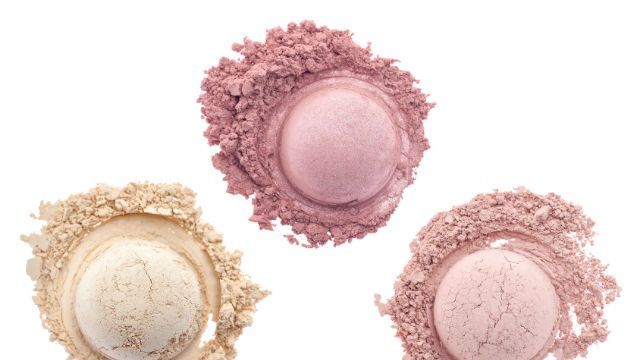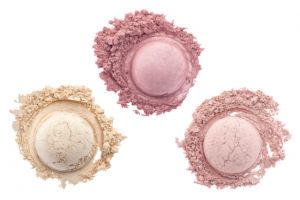
Although you may not have heard about it until the last few years, mineral makeup has actually been used for centuries. The ancient Egyptians encircled their eyes with kohl to create the original smokey eye look, while the ancient Greeks used powders made from lead to lighten and brighten their skin.
While this practice was 100 percent natural, covering the skin with lead does not exactly display the wisdom we’ve come to expect from the Greeks. Today, mineral makeup is still marketed as a skin-healthy option for those looking for chemical-free, natural cosmetics. However, although it will not disfigure or kill you as it did the Greeks, modern mineral makeup is not without its problems.
Read through the following pros and cons of mineral makeup to decide if it’s the best choice for you and your skin.
Pros
Good for acne
Mineral makeup is usually non-comedogenic, meaning it will not clog pores and is safe for people with acne to use.
All natural
Pure mineral makeup (if it is truly pure) is made without additives like fragrances, dyes and preservatives—ingredients found in non-mineral makeup which often cause skin irritation.
Anti-inflammatory
Mineral makeup formulations containing titanium dioxide and zinc oxide could be anti-inflammatory, and some dermatologists believe these minerals could help reduce inflammation-related skin problems such as rosacea and acne.
Great coverage
Mineral makeup is known for providing consistent coverage that lasts longer than most traditional cosmetics. Mineral makeup is even waterproof, so it can make it through a swim or a workout session.
Breathable
Mineral makeup often feels more light and breathable than traditional makeup, especially in the loose powder variation. This quality makes it comfortable to wear during summer months or sweaty workouts.
Cons
May contain chemical preservatives
Many brands of mineral makeup are not ‘pure’ in the sense that they use synthetic fillers, parabens and other forms of chemical preservatives that can create problems for some wearers. As avoiding these ingredients is often why people choose to use mineral makeup in the first place, when choosing makeup, always remember that cosmetic companies can use the words ‘mineral makeup’ on a product as long as it contains any amount of minerals—this label doesn’t necessarily mean that what you’re buying is all natural or free of chemicals.
So, when choosing mineral makeup, or any makeup for that matter, be sure to read labels and research unfamiliar ingredients.
Drying
Some people find mineral makeup to be drying, which can make wrinkles more noticeable and make skin feel tight and uncomfortable.
Irritating
 Some brands of mineral makeup use bismuth oxychloride in their cosmetics, a natural byproduct of lead and copper processing which is also a known skin irritant.
Some brands of mineral makeup use bismuth oxychloride in their cosmetics, a natural byproduct of lead and copper processing which is also a known skin irritant.
Limited options
Because pure mineral makeup contains no added dyes or coloring agents, there are not as many colors and tones available as there are with traditional makeup. This can especially be a problem for those with darker skin.
-The Alternative Daily
Sources:
http://www.mnn.com/lifestyle/natural-beauty-fashion/questions/what-are-the-pros-and-cons-of-mineral-makeup
http://www.newbeauty.com/blog/dailybeauty/6346-the-pros-and-cons-of-mineral-makeup
http://health.howstuffworks.com/skin-care/beauty/skin-and-makeup/mineral-makeup.htm
http://www.ehow.com/list_6627505_pros-cons-mineral-makeup.html
http://howskinworks.com/is-a-mineral-makeup-your-best-foundation-choice

